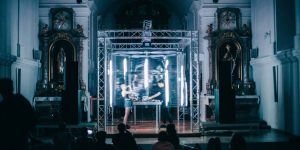Scientists
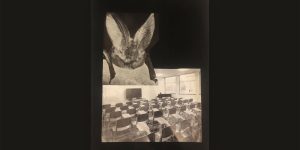
Creating a New Normal: Arts, Design, Humanities and Social Sciences 4 Emergency?
Eveline Wandl-Vogt, Nirmala Menon, Dario Rodrighiero, Elian Carsenat
Panel discussion: As this virus, and maybe further to come, affects the world and our way of living, we are aiming to explore pioneering research and action based art and design. During the time of social distancing and quarantining, it has become evident that even with the principles of science and technology that provide us with access to practical methods for securing our lives, humanities-based principles and skillsets have played a key role in enabling us to evolve. In light of this, we might want to rethink our approach to future living.
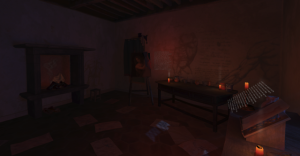
Join our VR guided tours to Leonardo da Vinci's studio
Explore Leonardo da Vinci’s studio, see artefacts from his time that capture some of the doubts we assume he had about his life and work, and learn about the concept of "doubt" during the renaissance.
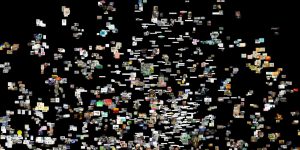
Focus:Archive
The Focus:Archive section summarizes program items that take place at the festival this year in connection with archives.
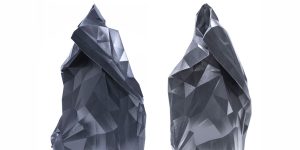
Uncertainty with AI-terity (Music Performance)
Koray Tahiroğlu (FI/TR)
The composition Uncertainty keeps the musician in a hesitant state of performance, providing a non-rigid but identifiable musical events, followed by ever shifting new sounds. Uncertainty is a composition written for the AI- terity instrument that comprises computational features of a particular artificial intelligence (AI) model to generate relevant audio samples for real- time audio synthesis. The unusual behaviour of the Al-terity puts the performer in an uncertain state during performance. Together with being able to move through timbre-changes in sonic space, the emergence of new sounds allows the musician to explore a whole new range of musical possibilities. Composition turns into a continuous state of playing, reformulating an idiomatic relationship with the Al-terity and opening up a fresh variety of musical demands.
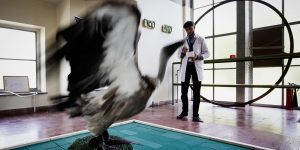
Earth Water Sky Artist Residency - Livestream
Haseeb Ahmed (US)
2020 Earth Water Sky artist in residence Haseeb Ahmed (Sky) will present his film “The Wind Egg” and discuss his body of work, notably on particulates and the particular narratives carried by the wind, which is also the subject of his residency at Science Gallery Venice. The presentation will be followed by a question and answer session open to the public, moderated by residency producer/curator Ariane Koek.
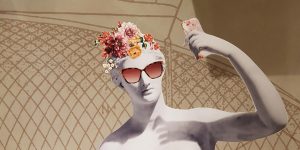
Exponential Mindset: The Skills of an Exponentialist
Niki Ernst, Eveline Wandl-Vogt
A 4-Sessions dive deep into the Exponential Mindset. An interaction series to consider the SDGs from an exponential growth strategies perspective.
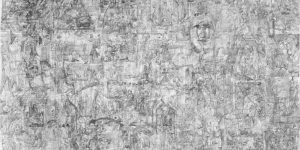
Creative Question Challenge: Quietly Subversive
Ciprian Mureșan (RO), Sanneke Stigter (NL), Corina Bucea (RO)
'Let us finish what we started'. This is how the UN introduces its first Sustainable Development Goal - to end poverty in all forms and dimensions by 2030. The 17 Sustainable Development Goals and their 169 targets have been described as a sprawling, misconceived mess of grandiose intentions. The title of the development agenda itself - 'Transforming our World' - oozes utopian ambition. It was adopted by 193 nations in 2015. Five years later and with ten years left, how do you think our world will transform?
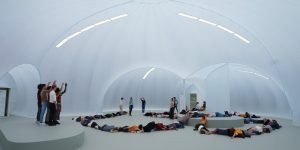
Creative Question Challenge: Embodied perception and life as movement
Alexandra Pirici (RO), Paco Calvo (ES), Corina Bucea (RO)
'Let us finish what we started'. This is how the UN introduces its first Sustainable Development Goal - to end poverty in all forms and dimensions by 2030. The 17 Sustainable Development Goals and their 169 targets have been described as a sprawling, misconceived mess of grandiose intentions. The title of the development agenda itself - 'Transforming our World' - oozes utopian ambition. It was adopted by 193 nations in 2015. Five years later and with ten years left, how do you think our world will transform?
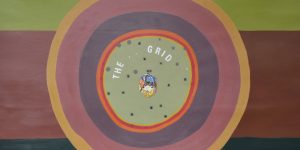
Community Creates Mobility: Participatory Speculative Critical Design beyond dream-making for the City.
Eveline Wandl-Vogt, Niki Ernst, Claudia Falkinger, Peter Zehetbauer, Wolfgang Preisinger, Elisabeth Füssl, Penesta Dika, Aleyda Rocha Sepulveda; lightning talk: Jeffrey Schnapp
Co-Envisioning Mobility Infrastructures - The challenges facing cities around the globe are complex and multidisciplinary by nature. Attempting to solve them in conventional linear ways is insufficient for addressing these manifold human-environment relationships that are at the heart of these challenges. Alternative approaches are necessary.
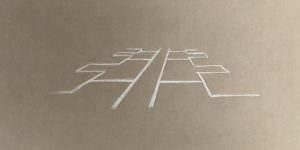
Affordances of spaces
Elena Cologni
Accelerating Knowledge for the SDGs: Life streamed session - The work developed from a two-year long investigation into ‘architectures of difference’, is based on a postcard in sculptor Barbara Hepworth’s collection (circa 1952), in a note she refers to this in terms of the space between people: it’s relational and social aspects. The piece also evolved from considering the punctuations found in our cities’ grounds, and how these contribute to developing a sense of attachment and belonging, which is at the basis of wellbeing (eg. Lived Dialectics, 2016, MuseumsQuartier, Vienna; Seeds of Attachment, 2016/18, New Hall Art Collection, Cambridge).
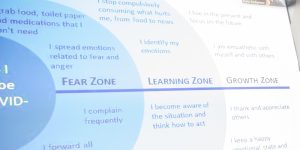
COVID19 Insights: Mapping Diversity and Community
Dario Rodrighiero, Elian Carsenat, Gabriel Carsenat, Eveline Wandl-Vogt
COVID19 is a fire accelerator. We were using the time of the lockdown to deepen our transnational collaboration and think on how we can apply our knowledge and skills to current real world problems related to the pandemics. This visualization based on the recently developed biocultural diversity index and lexical distances. This work is unpublished up to now and unique.
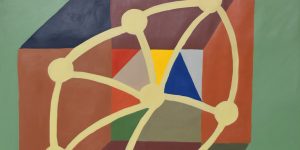
museum of knowledge science
Eveline Wandl-Vogt, Atiq Hashmi, Andreas Brandner, Louise Deininger
Virtual co-design session - Knowledge is at the heart of sustainable development. The achievement of the Sustainable Development Goals requires therefore effective knowledge management. However, knowledge needs to be understood in regional, societal, historic and cultural context. Art and culture are essential to the understanding of knowledge, specifically when knowledge - and its various aspects and processes - is reflected as a subject of art. Beyond reflecting knowledge, art is also a medium of knowledge, like articles or books.
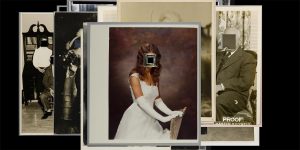
CURATORIAL A(I)GENTS
metaLAB (at) HARVARD
Eight experiments in the computational curation of collections - Curatorial A(i)gents consists in eight machine-learning-based experiments in and around museum collections and data sets developed by members and affiliates of metaLAB (at) Harvard, an idea foundry, knowledge-design lab, and production studio experimenting in the networked arts and humanities.
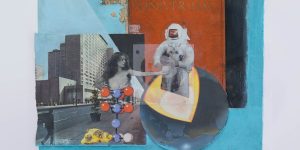
Algorithm Inventarium: methoda-thon
Matthew Battles, Max Haarich, Aleyda Rocha Sepulveda, Eveline Wandl-Vogt
Towards Inclusive, Sustainable Futures - The experimental "methodathon" is part of a series of “algorithm inventarium sprints” related to the project Algorithm Inventarium (AI+): diverse co-creation interventions combining action research approaches for accelerating the collaborative auditing of algorithms (e.g. by applying gamification techniques for data awareness, or auditing through interfaces). The aim of this session in connection with the ars electronica festival community is to identify, co-create and/or discuss specific methods, protocols and experiments for participatory research in the spirit of citizen science and community-based research in Vienna.
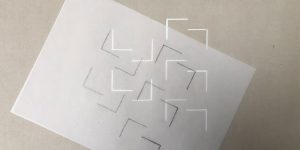
Algorithm Inventarium: The Greater Good Ethics Canvas
Eveline Wandl-Vogt, Henry Dobson, Max Haarich
Towards Responsible, Humane Technologies - In this interaction we are introducing the “Greater Good Ethics Canvas” to be used for the development of Humanity Centered Technology.

STARTS Exhibition
Kepler's Garden on the JKU campus
STARTS is a platform aiming to foster alliances of technology and artistic practice that effectively implement European policymaking to nurture innovation and that also benefit the art world.
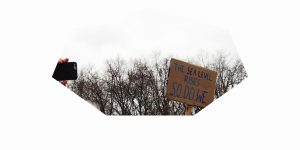
Creative Question Challenge: Radical change by working together
Kat Austen (UK/DE), Indrė Žliobaitė (FI), Laurence Gill (IE), Andrew Newman (AT/AU)
'Let us finish what we started'. This is how the UN introduces its first Sustainable Development Goal - to end poverty in all forms and dimensions by 2030. The 17 Sustainable Development Goals and their 169 targets have been described as a sprawling, misconceived mess of grandiose intentions. The title of the development agenda itself - 'Transforming our World' - oozes utopian ambition. It was adopted by 193 nations in 2015. Five years later and with ten years left, how do you think our world will transform?

Networked Archives
Oliver Grau (DE), Dagmar Schink (AT), Christiane Paul (DE/US), Mariano Sardón (AR), Rafael Lozano-Hemmer (MX/CA), Manuela Naveau (AT)
Panel - In a world in which we increasingly rely on online content, media art archives and platforms are no exception. The Networked Archives panel addresses their role in making media art accessible online, and highlights various approaches to the field. As archives and metadata are central issues and the base for the digital content sector they are evolving into important online value chains. How can archives be monetized, contribute to the developments in the media art markets and form base for online platforms?
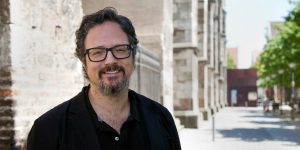
Best Practices for the Conservation of Media Art from an Artist's Perspective
Rafael Lozano-Hemmer (MX/CA)
Talk - For the past five years, media artist Rafael Lozano-Hemmer has been developing a system of procedures to help his studio deal with the maintenance of hundreds of computerized artworks that are in collections around the world. In this talk, Rafael will go over the main methods to accomplish this, in the hope that other artists will adopt them and create realistic expectations for potential collectors.
